|
In my life, there have been many dreary days when the sun did not shine and it was too wet to go out and too cold to play ball. On those days I could read and travel around the globe with books. Sometimes I went to places that were real and sometimes I traveled into Narnia or Wonderland. In my travels, I discovered that from there to here, from there to there, funny things are everywhere.
When I grew up I became a teacher and had students who would rather eat green eggs and ham than read. They wouldn’t read in a box or with a fox, in a house or with a mouse, but with some work most discovered that they liked reading everywhere. March is celebrated as Reading Month by schools and families across the country. Special days and contests are designed to help students discover the joys of reading. We celebrate reading in March because March 2, is the birthday of Ted Geisel, better known as Dr. Seuss. Geisel did much to expand the library of children’s literature by creating high-interest stories as an author-illustrator as well as the editor of Beginner Books. He worked with P.D. Eastman and Stan and Jan Berenstain to create a library of titles that would motivate children to read including Go, Dog, Go and Old Hat New Hat. One of his requirements was that the illustration on the page had to match the words to help struggling readers self-correct. This year, the day is being swallowed up by controversy about the work of Dr. Seuss. I’ve seen more posts about the controversy than I have about reading month! So here’s my plan of action - I’m going to move forward without heeding any of the articles because they don’t affect me and I doubt they affect you. One story states that a school district in Virginia is dropping Dr. Seuss and another states that six books will no longer be published. Although I have opinions about these issues, neither announcement has any immediate effect on my life. I don’t live in Virginia and I already own a copy of And to Think That I Saw It On Mulberry Street. Andy Warhol predicted a world where everyone would be famous for fifteen minutes. I’ve seen people achieve those minutes in a variety of ways but it seems like a current popular method is to cancel something. People start sharing their approval or disapproval and soon it’s all anyone can talk about. But what happens then? We aren’t talking about the benefits of reading, rather we are arguing and fighting for something that really has no impact on us. I’ve seen many shares of the anti-Seuss campaign with great consternation and while this is understandable it has to stop. Social media gives you a positive feedback loop so the majority of what you see affirms your own viewpoints. This gets us nowhere. I strongly encourage you to read “The Zax.” It’s only a few pages long and can be found in The Sneetches and Other Stories. (That whole book is incredibly relatable right now. In “The Sneetches,” Sylvester McMonkey McBean takes advantage of the Sneetches by exploiting their desires and encouraging divisiveness.) In “The Zax,” a North-Going Zax and a South-Going Zax run into each other while walking across an open plain. Neither would deviate from their course and so they stayed butting heads for a couple of years until the growing world grew around them. Arguing with people on social media feels like that. I can argue and refuse to deviate course but what will that accomplish? So today, I’m asking you to join me. Don’t be a Zax. Don’t let Sylvester McMonkey McBean manipulate you. Pick up a book and read. If you can, read a Dr. Seuss book aloud today. Luke (age 2) was delighted by Green Eggs and Ham this afternoon and I plan on reading and discussing some of The Sneetches and Other Stories with Logan this evening. Read The Lorax and discuss conservation or read The Butter Battle Book and discuss nuclear proliferation. For a taste of what it feels like to age read You’re Only Old Once, but follow it up with something positive and inspiring like Horton Hatches an Egg. I know it’s upsetting to read about things “getting canceled” but you don’t have to participate. No one is coming for my books (yet) so I’m going to fight back against cancel culture by going around the “other Zax” and sharing my love for reading and learning with others. At night, don’t spend time fretting over what others are doing or refusing to do, rather inspire those whom you have the ability to influence then lay your head down saying, “Today is gone. Today was fun. Tomorrow is another one. Every day, from here to there, funny things are everywhere.”
2 Comments
In just a few days Hamilton: An American Musical will be debuting on Disney+. When I first heard this news I was elated. I’ve seen the stage production in Chicago twice and listened to the original cast recording many times. I wanted to take the time today to tell you a little about it before it airs on a streaming service with so much content for children. If you have Disney+, you know it’s great. The vault has been opened and users have access to (almost) all the movies Disney has created. That said, it is important to keep in mind that not all movies on the service are appropriate for children. Some, like superhero movies, are violent and not appropriate for small children. Which brings us back to Hamilton. As I said before, I thoroughly enjoy the musical but always shudder when I see young kids listening or attending. Here’s why. There are several objectionable elements that make the musical inappropriate for young kids.
He concludes that he wrote his own successes in the past and decides to do it again. This time his writing exposes his family to shame and he finds that he can not write himself out of every situation. Later in the song “It’s Quiet Uptown” Hamilton receives forgiveness from his wife and we see a beautiful example of redemption. I’ve heard immature listeners quote “Hurricane” as a type of mantra but that lacks the understanding of its place in the story.
So, there are the negatives. With all that you may be saying, “Um, Edy, why are you a fan of this show?” Yes, there are negatives. But there are many parts of this musical that lead me to rank it up with my favorites including The Phantom of the Opera and Les Miserables.
We just finished school last Friday. Normally, I’d be posting our summer bucket list and sharing a list of places we planned to visit as well as lists of activities we planned to accomplish. I would have done this in early May but this year is going to look very different. Our governor extended the stay at home order for our area until June 12. Whether or not we agree with that choice, it has a major impact on our plans. Museums, zoos, etc., may not be open so this year there is no point in adding them to a bucket list. Many of these places offer virtual tours, but we haven’t been able to embrace those in the same way we can get excited about visiting in person.
In past years we’ve had the Summer of Go and Grow, the Summer of Adventure, the Summer of Exploring, and so on. How do I create a summer bucket list when there is no chance of adventure, exploring, or going? Well, after listening to our pastor’s sermon about Psalm 34 I decided to plan the Summer of Radiance. Psalm 34:5 says that those who look to the Lord are radiant. Radiant is defined as “(1) emitting rays of light; shining; bright: (2) bright with joy, hope, etc.: Jesus said he is the light of the world. When I try to be the light of the world I fail miserably. My lights power source quickly grows dim and I burn out quickly. But Jesus IS the light of the world. When I radiate His light I don’t grow weary because I’m no longer responsible to be the source of the light. This summer our goal will be to radiate God’s love to the world. It feels like now more than ever we need to be a light in the darkness. Murder, violence, hatred are all too common. Although we all need a break now and then, the culture of entertainment is not healthy. Our days are not just about entertaining ourselves but we were created to fulfill a beautiful purpose. That purpose, what we call God’s will for our lives, cannot be accomplished if we focus on making ourselves happy. This summer we want Logan to see that there is satisfaction, fulfillment, and joy to be found in serving God by learning to care for the things God has provided for us and by learning to care for others. So here’s our list: Study logical fallacies critical thinking skills Write letters to family and friends Learn to plan and cook a dinner Watch the Cosby Show Build a river in the yard Read the 100 Cupboards series Stargaze Learn how to wash the car by hand Go for a hike Build a bat house Go fishing Ride bikes to Rochester Make popsicles Build a squirrel picnic table Perform 5 random acts of kindness Build a stand for Mikhail Gorbachev (the betta fish) Finish Big Life Journal Go (alone) to Ace Hardware Learn to tie a tie Plant a forest garden I'm currently reading a book called Oh, Ranger! It is a collection of stories and essays written by National Park Rangers. I was moved by an essay written by Shelton Johnson, an African-American National Park Service ranger. While looking through photographs at Yosemite's research library he found a photograph of 25 African-Amerian soldiers who had protected the land from ranchers who were grazing their animals on park land. Their names are not recorded but these soldiers protected Yosemite until they were relieved by another regiment who noted their excellent service. Often African-American men would choose to serve in the military because it was one of the few jobs that provided a pension available to them. That said, they still failed to receive proper respect. Ranger Johanson wrote them a letter thanking them for their service and for allowing himself to be caught up in their story. I found the ending particularly poignant: "Thank you for clearing the trail that I followed 100 years later. You cannot imagine how your passage has made my journey infinitely easier, as I hope mine will be for those who follow." My heart hurts when I read stories about violence against others because of how they look. These stories go back for hundreds of years and involve all sorts of people. They are sad, dark, and full of hate. Do you hate these stories too? Perhaps, like those soldiers who protected Yosemite, we can do some things to make the journey of those who follow us a bit easier.
If you ran yesterday and posted about in on social media, good for you. Now keep running. Keep moving. Call someone in an elected office. Create a petition. Volunteer to help others. Look each person you meet in the eyes and see them as a life created for a purpose. One of my favorite preschool memories is Jay asking Maddie what color her new baby was going to be, brown or white. Maddie, whose mom was very pregnant, was the only fair-skinned child out of my 10 students. She looked around the room and said, “I don’t know, probably brown.” They honestly didn’t know why our skin looks the way it does. It appeared to be about statistics to them and asking about it was as casual as asking a friend to pass the playdough. Aging robs us of the innocence of youth but it doesn’t have to rob us of our curiosity. Below I’ve provided a list of books that have helped me get into the lives and experiences of those whose heritage I do not share. True these are fiction, but the experiences of the characters are very real. I, like Ranger Johnson, thank those who have come before me. I come from a line of curious and compassionate people. My wish is that my life will pave the way for future generations to share God’s love with the world as I try, yet often fail, to do. Copper Sun by Sharon Draper
Elijah of Buxton by Christopher Paul Curtis The Watsons Go to Birmingham, 1968 by Christopher Paul Curtis Stella by Starlight by Sharon Draper Finding Someplace by Denise Lewis Patrick Chains by Laurie Hase Anderson Brown Girl Dreaming by Jacquline Woodson Roll of Thunder Hear My Cry by Mildred Taylor A Long Walk to Water by Linda Sue Park Underground by Jean Ferris Today's Word: Symbiotic Four syllables. Pronounced [sim-bahy-ot-ik]. adjective. Defined on Dictionary.com as “living in symbiosis, or having an interdependent relationship.”
I’m currently reading a book called Eager: The Surprising, Secret Life of Beavers, and Why They Matter. After telling some friends that I was reading this book they consoled me and offered some ideas about how to relieve my boredom. Undaunted, I told them I wasn’t bored. This is just the kind of book I find interesting. Did you know that beavers could reduce wildfires and help stop the droughts that plague the west? I didn’t, but I do now. My family and friends know what’s coming when I’m pulling up photos to show them - “Look! Look here at Susie Creek. Notice the changes that have occurred since the introduction of beavers! Where are you going? This is fascinating!” They’ve grown accustomed to hearing about whatever book I’m reading at the time. “Caffeine had a crazy impact on the French Revolution.” “King Leopold . . . what a terrible human he was.” “So people are wary of AI but what we really need to monitor are algorithms.” From Eager, I learned about the symbiotic relationship between beavers, elk, wolves, and salmon. When humans alter one or more of the parts of an ecosystem, the system falls out of balance. Repairing that imbalance is usually possible, but often costly. For example, since 2006 bats have been combating diseases including White-Nose Syndrome. It is really easy to say, “Bats are gross. They freak me out. Who cares if they all die.” BUT Bats save farmers billions of dollars each year by eliminating pests. Farmers would spend significantly more on pesticides if bats were eliminated. (Not to mention the impact of increased pesticides on the food system.) Bats also feast on bugs which controls the insect population and act as pollinators. So why should you care about bats? Because they fix a problem (insects/pollination) that you didn’t know you needed fixing. Generally, I thought of the word symbiotic in a scientific manner - organisms need each other to survive - but after spending over a month in quarantine I’ve realized that symbiotic is much more. As an introvert, I am perfectly happy to stay home and spend time alone. My biggest struggle at the beginning of quarantine wasn’t being apart from people. It was that Logan and Jason were both home and I couldn’t be more alone. Now we are settling into a pattern of me spending time reading while Jason and Logan connect with friends via technology. I stay connected with people via texts, emails, phone calls, and Zoom. Then we come back together for cooking and games. Something that has become painfully obvious to our household, as well as the rest of the world, is the symbiotic relationships we are part of that are currently missing from our lives. Logan worked out a lot of his angst at school while chasing friends, messing around in the halls, and moving around the school with his people. Walking alone outside during “forced outside time” doesn’t provide the same kind of effect. We’re seeing a similar breakdown of relationships causing fallout in the economic sector. We have a symbiotic relationship with each other that so many of us, including me, took for granted. Until now. If you are sad and tired of being alone, that’s okay. It’s okay to be sad that you feel alone. In fact, being alone was the first thing that God said wasn’t good about His creation. Check out this passage from Genesis 2. “The Lord God took the man and put him in the Garden of Eden to work it and take care of it. And the Lord God commanded the man, “You are free to eat from any tree in the garden; but you must not eat from the tree of the knowledge of good and evil, for when you eat from it you will certainly die.” The Lord God said, “It is not good for the man to be alone. I will make a helper suitable for him.” Now the Lord God had formed out of the ground all the wild animals and all the birds in the sky. He brought them to the man to see what he would name them; and whatever the man called each living creature, that was its name. So the man gave names to all the livestock, the birds in the sky and all the wild animals. But for Adam, no suitable helper was found. So the Lord God caused the man to fall into a deep sleep; and while he was sleeping, he took one of the man’s ribs and then closed up the place with flesh. Then the Lord God made a woman from the rib he had taken out of the man, and he brought her to the man. The man said, “This is now bone of my bones and flesh of my flesh; she shall be called ‘woman,’ for she was taken out of man.” As a child, I wondered how long it took for Adam to feel alone. I thought it must have been a very long time because he had all of Eden to explore, he named the animals, he talked to God, but then when I saw that God made Adam AND Eve on day six I realized that Adam had been lonely after less than ONE day. I’ll save any comments about men needing women and just point out that we weren’t supposed to be alone. When Adam is introduced to Eve he breaks out in verse and gives us the first lines of poetry ever spoken. If you are looking forward to celebrating with others when this is over that is exactly the way God created you to feel. Connected. I hope that this time of quarantine has helped you focus more on those with whom you have a symbiotic relationship. I know I have realized how much I like sitting around people even if I don’t like being at loud parties. I’ve realized how much encouragement I get from seeing my kids laugh and talk together. I’ve realized the great pleasure I took in deep conversations over coffee or dinner with friends. This too shall pass but I hope the lessons I’ve learned don’t. I remember checking out videos from the library and after finishing them removing the video from the VCR and putting them in the rewinder. To this day, I can't hear, "Be kind" without thinking rewind. Today is World Kindness Day according to the Facebook posts and my morning greeting from Alexa. I am tempted to research how long World Kindness Day has been a thing, who started it, and who is celebrating it, but instead, I’m going to refrain from that extraneous research and go with it. On my recent trip to Seneca Falls, New York, I learned a great deal about kindness and the great impact ordinary individuals can have on the world around them. We arrived in Seneca Falls after sunset. The small downtown area was decorated for Christmas, a gentle snow was falling, and the church bells were ringing out “How Firm a Foundation.” I told my sister that I was reminded of Bedford Falls, the town from It’s a Wonderful Life and she immediately agreed. As we were checking in, the hotel clerk gave us a list of area attractions including the It’s a Wonderful Life Museum. He explained that Seneca Falls is the town that Bedford Falls is based on. Our days there included a visit to the Women’s Rights Historical Park, Elizabeth Caddy Stanton’s home, William Seward’s home, and Harriet Tubman National Historic Park. In each of these places, we noted the influence of major figures like Anthony, Stanton, Seward, and Tubman, but we also noticed the courage, conviction, and compassion of those whose names will most likely never be included in a national park or museum. There were countless women who stood up for the rights of others. As I previously wrote, the subject of women’s rights can be controversial, but here we are talking about rights such as property ownership and the right to remove themselves and their children from a dangerous and abusive husband. Women who were not destitute or in danger took upon them the fight that the others in those situations didn’t have the ability to fight. William Seward was a remarkable man who served with Lincoln as Secretary of State but was responsible for doing so much more. One act stood out as particularly significant during our visit. He sold land to Harriet Tubman including a home that she and her parents lived in after their escape from enslavement. This was after the Fugitive Slave Act and before the Emancipation Proclamation so his action was in direct defiance of federal law, but he believed that it was the right thing to do. Harriet Tubman’s life was full of her kindness to others despite being enslaved and mistreated. Often the word kindness invokes a soft-spoken, gentle manner, but Harriet was kind in a powerful way. She went back into the South thirteen times to rescue her people, ignoring her own safety. She also led troops into combat and freed 750 men, women, and children during a US military action. Retirement was anything but restful. She opened a home for the elderly on her land because the other home for the elderly in Auburn was for whites only. Her home was for everyone. Harriet Tubman exemplified kindness in action. Our last stop during the trip was at the It’s a Wonderful Life Museum. There we learned the beautiful story behind the movie. Frank Capra stopped in the town after reading the short story which would become the movie. There, while receiving a hair cut from an Italian immigrant, he heard the story of Antonio Varacalli. In 1917, Antonio was a young man working to save up money to bring his family over from war-torn Italy. He watched a woman jump off the bridge in an attempt to commit suicide and jumped in to save her. He succeeded in saving her but lost his life in the process. The town rallied together and collected enough to bring his family to the area. Capra changed the ending of the movie to include the town rallying around George and set the movie in a place that looked like Antonio’s town. Acts of kindness can be small or large. They can be quiet or they can be bold. This “World Kindness Day” rewind your thoughts to some of the people who have influenced your life. How has their influence changed you? As Clarence observed, “Strange, isn't it? Each man's life touches so many other lives. When he isn't around he leaves an awful hole, doesn't he?” Today, don’t leave a hole. Get in there and influence someone. Maybe a child, maybe the person behind you in line at Starbucks, maybe a future generation. Capra modeled the bridge in the movie after this bridge in Seneca Falls.
I’m a huge fan of Far Side by Gary Larson. If you aren’t familiar with it, it’s a syndicated comic that was usually one pannel. The figures are distorted and the humor is quirky. One that has stuck with me was titled “Classic Conversation Stoppers.” The panel is divided into four squares and depicts four men talking to guests. Each of the men is saying something that is guaranteed to end a conversation. My favorite is the guy saying, “‘Contagious? Contagious?’ I asked my doctor. ‘Realy contagious,’ he tells me.” Insert awkward pause. Have you ever experienced something like this? You say something and people respond with awkward silence. Last year I created a presentation about World War I to commemorate the 100th anniversary of the end of the war. After completing that I decided to work on a presentation commemorating the 100th anniversary of the 19th amendment to the Constitution, which grants women the right to vote. I thought World War I had been tricky to investigate, but nothing could have prepared me for the mess that I’ve found during my study of the women’s suffrage movement. In my research, I’ve studied Biblical anthropology - the study of humans as they relate to God, the history of women in the United States and Western Culture, and the philosophical foundations of the feminist movement. Phew! I’ve read about Upity Women of Medieval Times, Wild Women of Michigan, 12 Extraordinary Women of the Bible. I’ve read The Women’s Hour, Roses and Radicals, and (I truly loved this one) Cinderella Ate My Daughter. Relating to business I’m reading Lean In and, as a counterpoint, Lean Out. I’m intrigued and immensely enjoying this research, but all these viewpoints and counterpoints leave my brain a tangled mess. When my thoughts become tangled, I find the best method of unraveling them is talking. I’ve come up with some of my best party planning ideas when talking to the cashier while at the supermarket checkout. (Probably why I’m not interested in curbside pick up or grocery delivery.) In the past few months, I’ve learned that the phrase, “I’m studying the history of women’s rights,” is a classic conversation stopper. People become uncomfortable and shift around looking for an out. One person abruptly stated they had to leave and ran away. I think most people are afraid of getting involved in a controversial conversation because of the tension in our current culture. Viewpoints collide and emotions run deep, but I believe that this is a very important and vital study. I keep typing and deleting as I’m trying to explain further, but I’ll never be able to fit everything I want to say in this post. I’m going to state a few truths I’ve discovered, and leave it at that for now.
That’s all I’m going to say about this for now. I can already feel the discomfort and I can hear the, “Well, I don’t know what she means by that,” running through your mind. Feel free to comment below or message me if you want to talk more about this and look for future posts about women’s rights. Wait! Where are you going? I need someone to talk to about this! Tomorrow my sister and I head out to visit the Women’s Rights National Monument. It is in Seneca Falls, New York and is the sight of the first Women’s Rights Convention where the suffrage issue (women voting) was first publically proposed. As I research this topic, I feel that visiting this monument will help me gain a deeper perspective on the issue and the time spent with my sister will help me unravel my thoughts. Follow along on my Instagram (@edy2207) story for an inside look at our adventure.
I recently had the amazing opportunity to present at a teacher's convention. This particular convention included Christian educators from all over the Great Lakes Region. I presented about World War I and about teaching history with a Biblical worldview. I think I'm supposed to be all calm and professional about it, but can I just say -- THAT WAS SO MUCH FUN!!! I got to talk to teachers and talk about nerdy history stuff and it was just the best! Okay, back to sounding like a calm adult. I would relish any other opportunities to speak to groups in the future should the opportunity arise. Although my presentations weren't specifically about reading books, I had stacks of books to recommend at each. I see immense benefits in students reading across a broad spectrum of genres and topics. Reading allows students to take their education into their own hands and study what they are interested in. Because we all differ so much in personality, it is always difficult if not impossible to find books that please everyone. When teaching 6th-grade reading, I used a method that I learned from Donalyn Miller in The Book Whisper. I assigned a total of 36 books for my students to read throughout the school year. I know this sounds daunting, but here's how it worked.
I used this method for three years and saw immense success. Pitfalls could arise so it's important for each teacher using this program to consider the definition of success that best matches their goals. My goal was to encourage literacy and get students reading. I had some students that only managed to read 5 or 10 books. I saw this as a win. As long as they noted everything and turned it in they at least got a C grade. (By the way, a C is and is acceptable. I'll write about that another day.) I also allowed and even encouraged students to read graphic novels. Nathan Hale writes fantastic graphic novels in the historical fiction genre. Some graphic novels, such as Snow White, have little to no words but tell a compelling story. I would talk with students and make sure they understood the symbolism and picked up on the literary devices the author employed in the illustrations. Learning to "read" pictures is a very powerful tool especially in this day when images are king. For my class, success equaled books consumed. And did my students consume books! During the 2015-16 school year, I had 52 students and we read over 1,400 books. Below, you can see a picture of our book chain. So that's how I taught reading. I got to read and learn with the students and we all grew. Maybe it isn't for every classroom, but I can't imagine my life without this experience. What was your classroom reading experience like as a middle school and high school student? Comment below and let me know. Today's wonder word isn't unusual or rarely used like spanghew or defenestration, but it is one one of my favorite words so I'll get right to it. Today's Words: Curious, Curiosity, Curiously Curious: Three syllables. Pronounced [kyoor-ee-uhs] Adjective. Defined by the OAD as eager to know or learn something Curiosity: Five syllables. Pronounced [kyoo r-ee-os-i-tee] Noun. Defined by the OAD as strong desire to know or learn something Curiously: Four syllables. Pronounced [kyoo-ee-uhs-lee] Adverb. The adverb form of curious. Curiosity is often associated with the young because children tend to ask a lot of questions. Sometimes parents bemoan this as a frustration because the timing of the questions can be frustrating. In our house, bedtime always seems to produce deep theological questions. Instead of looking at children's questions as frustrating, we should recognize that curiosity is a powerful thing. Albert Einstein said, "I have no special talent. I am only passionately curious." I would argue that he was particularly talented, but I think the point he was trying to make is the curiosity drives learning and growth and he had a lot of curiosity. Why is curiosity so important? Well, without it we accept our life as it is. That is not to say that curiosity breeds discontentment. Curiosity asks questions and seeks answers about how the world works rather than lamenting over one's current state. Alice's curiosity is what leads her though Wonderland. Had she been scared or disinterested she might have curled up in a ball of terror instead of continuing to explore. Curiosity encourages contentment because it occupies the mind with thinking and removes boredom. I've noticed that people (kids and adults) who are easily bored are often not very curious individuals. Curiosity gives the mind a place to go when the body is stuck in one place. Why is grass green? Why are there so many people working in this restaurant's kitchen? Who buys all the Spam at the grocery store? Why do birds move like that? Curiosity breeds wonder and wonder is a fantastic feeling. After reading Quackery, a book about the history of medicine, not only was I more curious about the history of medicine I was also left with a sense of wonder that any of us have survived to the year 2019. After reading Consider the Fork, I was left curious about the history of other household objects and in wonder of the simple innovations that make my life what it is. In How Children Succeed, Paul Tough argues that curiosity is a powerful motivator and an indicator of future success. High marks on report cards indicate an ability to follow directions (which is good) but a strong sense of curiosity is an indicator of future success (even better). Experts in listening and conversation will state all kinds of ways to engage in stimulating conversation. They will tell you to mirror your counterpart's body language and nod to let them know you're listening and a bunch more things to remember, but really, if you're curious about what you're hearing and you are paying attention you will listen well without all the steps. (Here's a great TED Talk to that effect.) So my challenge for you on this day is to live curiously. Live eager to know or learn something. In a conversation with someone who has strong opinions you disagree with? Find out WHY they hold those strong opinions. At a restaurant where your food taking too long to come up? Look at the restaurant design and try to understand the designers choices. On a long car ride? Ask questions about the lives of those you are with. A curious life is always growing and always moving forward. One last book recommendation for today is A Curious Mind by Brian Grazer and Charles Fishman. Grazer makes the case that his successes in life have a great deal to do with his curiosity and passion to learn new things from interesting people.
Earlier today, I wrote a really frustrated sad article about how much I'm struggling with Logan and his school work which I never published and have since deleted. I'll spare you that rant and just leave it at - we're struggling. Some of it has to do with executive function disorder which deals with organization, working memory, and attention. I constantly feel like I'm behind in some way. Like I'm treading water wearing a weighted vest.
Something else I'm struggling to accept is that I can't do it all. This year I had grand dreams of learning French, reading a big stack of books, learning to play the piano, getting into shape, keeping my house clean, making crafts for a PTO event, and keeping on top of writing letters to family and friends on top of writing my blog, preparing two more historical presentations, and working on a side writing project. I tell myself that because I'm not working full time all this should be possible, but I'm so wrong. Instead, I find myself shriveling in, depressed by my lack of progress. I've been successful at getting into shape and am currently training for the Detroit half-marathon in October. Yay! But the time spent training has got to come from somewhere and my other efforts suffer. I'm slowly trying to accept that I can't do it all. So my greatest struggle right now is being content. I've been trying to find contentment, but can't when I compare myself to other moms or chase unattainable goals. So how can I find contentment? What is the secret to finding contentment in the midst of turmoil? Fortunately, Paul told it to the Philippians in his letter to them. "I have learned to be content whatever the circumstances. I know what it is to be in need, and I know what it is to have plenty. I have learned the secret of being content in any and every situation, whether well fed or hungry, whether living in plenty or in want. I can do all this through him who gives me strength." This verse isn't about winning a sporting event or doing your best. It's about contentment in any and every situation. It's the secret, the key, the linchpin. So I can live contentedly in the situation God has placed me in and I can accomplish what he wants me to. Just so we're clear, this isn't easy though. I'm not quoting a quick verse then heading of to a perfect person soiree. The struggle is real, but at least I know the secret to success. So tonight, I hope you find yourself in positive circumstances, but if not, I'll take this opportunity to share the secret with you. Christ gives strength. |
"A jack of all trades is a master of none, but oftentimes better than a master of one." Archives
May 2020
Categories
All
|
AdventuresGet in Touch |

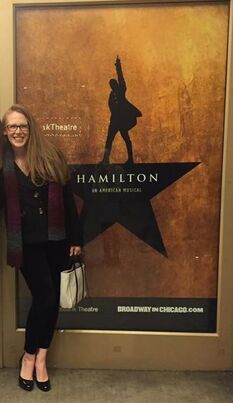
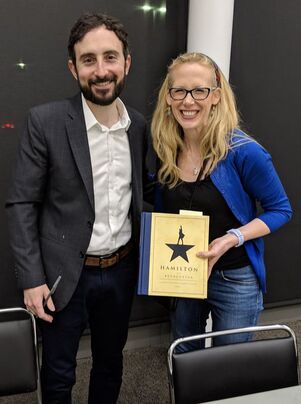
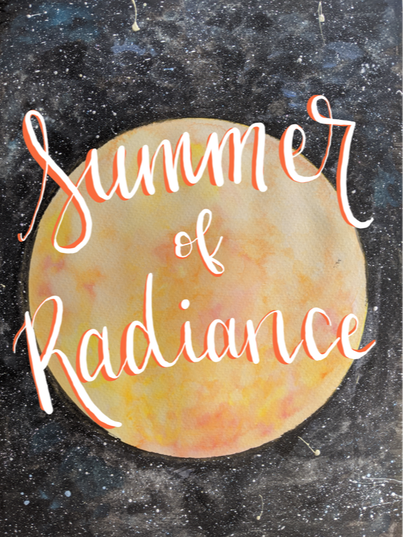
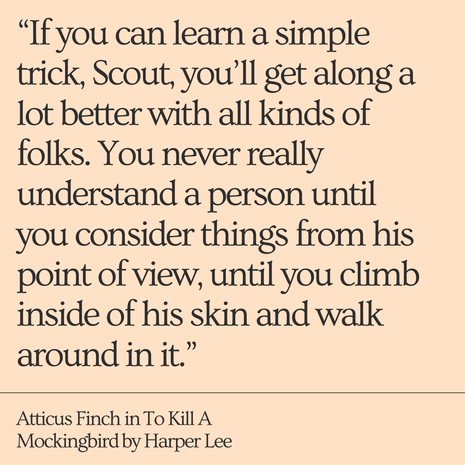

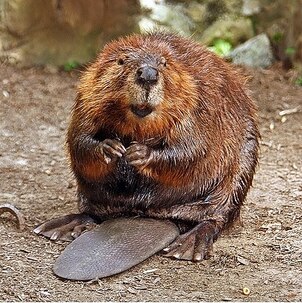
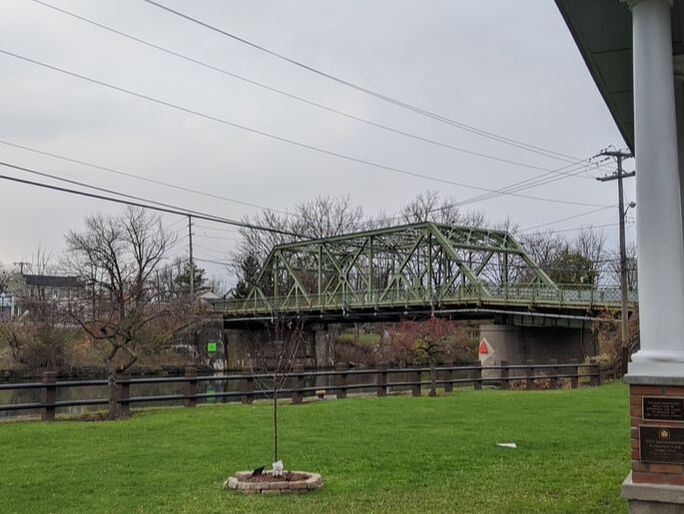
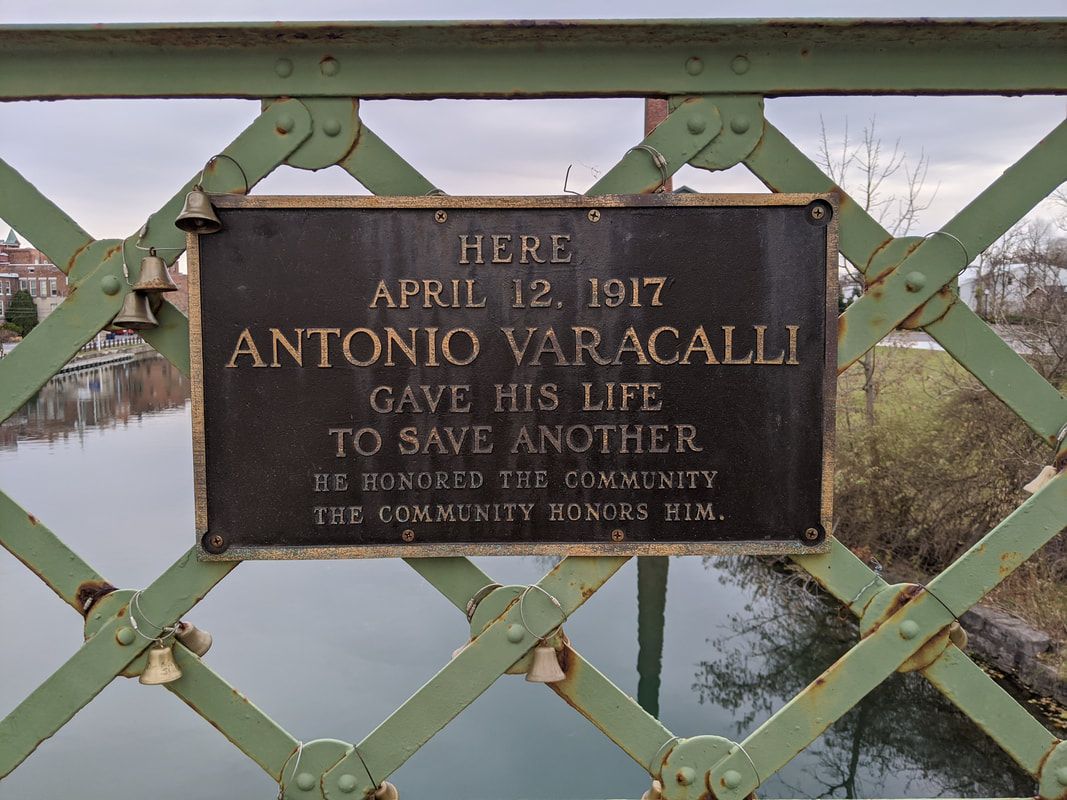
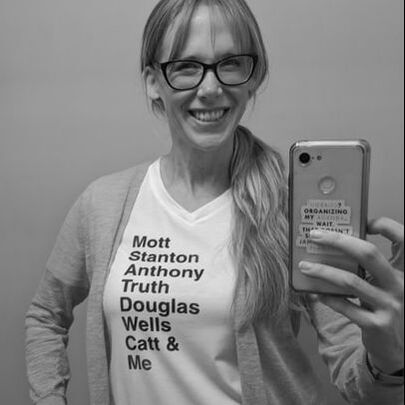
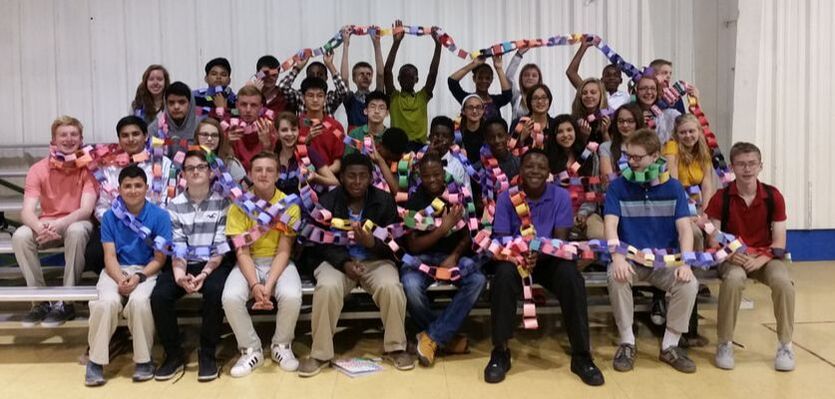
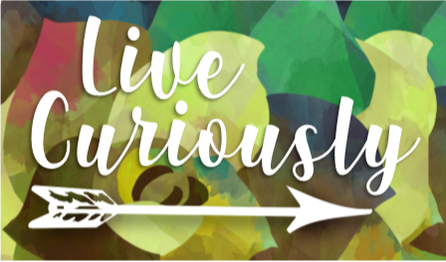


 RSS Feed
RSS Feed